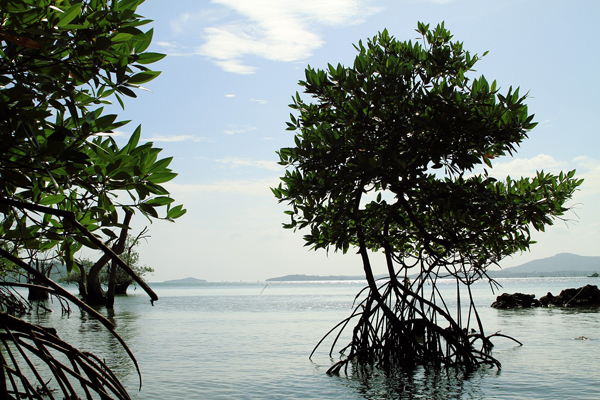How is mangrove ecosystem health defined? A local community perspective from coastal Thailand

External Links
Mangroves, intertidal forests, are increasingly considered a high-priority ecosystem for international conservation efforts. Setting targets for future mangrove conservation and restoration requires understanding of the health of the ecosystem. However, the way ‘ecosystem health’ is defined varies across locations, users, and indices due to differences in knowledge of the ecosystem, scales of the ecosystem being assessed, perceptions of what is ‘healthy’, or because of differences in the way people use or benefit from ecosystems. This can result in misunderstandings which can undermine effective actions to protect and restore functioning ecosystems. Here, we use a case study of a mangrove fishing community in coastal Thailand to examine how local people assess and define mangrove ecosystem health. Through participatory workshops, we show that local people use at least 27 indicators to define mangrove ecosystem health, including biological, physical, and human indices. Mangrove ecosystem health is defined by both direct material benefits derived from the ecosystem, non-material aspects, and the relational value experienced through ‘bundles’ of benefits linked to people’s livelihood activities. Our findings suggest that ecosystem health frameworks would be more useful if they incorporated social components and metrics, recognising both the interdependencies between ecosystems and human societies, and that ecosystems possess intrinsic value. Local communities that interact most closely with ecosystems can contribute to improving and operationalising frameworks for ecosystem health.
Angie Elwin, Elizabeth J.Z. Robinson, Giuseppe Feola, Vipak Jintana, Joanna Clark, How is mangrove ecosystem health defined? A local community perspective from coastal Thailand, Ocean & Coastal Management, Volume 251, 2024, 107037, ISSN 0964-5691,
https://doi.org/10.1016/j.ocecoaman.2024.107037.

